Students accepted into the University of Iowa’s Master of Health Administration (MHA) program come from a variety of academic backgrounds.
Some have undergraduate degrees in biology, health and human physiology, chemistry, or microbiology. Others majored in political science, English, women’s studies, music, and art. A dance major has even been accepted into the program.
Despite their different experiences, all MHA students will have one thing in common when they graduate from the two-year program: a job.
New MHA program directorBackgroundResearchTeachingEducation
Dan Gentry will succeed Tom Vaughn, associate professor in the Department of Health Management and Policy at the UI College of Public Health, as director of the MHA program. Vaughn will return to teaching and research at the UI after leading the MHA program for seven years. Gentry will begin at the UI on June 30.
2011–present: University of Memphis School of Public Health, professor and director of the Division of Health Systems, Management, and Policy, coordinator of the doctoral program in health systems and policy, and special adviser to the dean for strategic planning and accreditation
2007–2011: Rush University Medical Center in Chicago, professor and director of the Graduate Program in Health Systems Management
1994–2007: Saint Louis University (SLU) School of Public Health, where served on the faculty and as the director of the SLU MHA Program from 2004 to 2007
Financing, organization, and delivery of prevention and care services; tobacco policy; childhood obesity policy; HIV/STI policy; and evaluation of health and social service programs
Health care organization, health policy, and organizational analysis and change
MHA from the Medical University of South Carolina, PhD in Health Services and Policy Analysis from the University of California, Berkeley
The MHA program, which is offered through the Department of Health Management and Policy in the UI College of Public Health, has maintained a 100 percent job placement rating within the first three months after graduation for the past several years. Students have gone on to work at academic medical centers, consulting organizations, community hospitals, insurance companies, and health systems, to name a few.
Keith Mueller, professor in and head of the Department of Health Management and Policy at the UI College of Public Health attributes much of that success to an engaged faculty, rigorous academics, and comprehensive professional development. But another component essential to the program is its impressive alumni network, which is involved in the student experience from acceptance to job placement.
“I think that the alumni network is, hands down, the greatest strength of the Iowa MHA program,” says Chris Klitgaard, CEO of MediRevv, a Coralville-based company that specializes in management of the health care revenue cycle, and a ’99 graduate of the MHA program. “The alumni are always willing to work with current students and graduates to ensure that they are getting access to challenging and exciting career opportunities.”
This summer, Klitgaard, a past president of the MHA Alumni Board, is hosting an MHA intern, Kristin Bramow, at his business; Klitgaard and MediRevv have been sponsoring MHA interns for the past nine years.
“I try to stay very involved,” he says.
Betsy Winter, director of student services and academic program support for the Department of Health Management and Policy in the UI College of Public Health, says not every student job or internship is directly supervised by an alumnus or alumna, but more often than not, an MHA graduate had a hand in the process.
“Because these connections are so fluid, it’s hard to put a number to it,” she says. “However, if I had to guess, I’d say at least 90 percent of placements result from an alumni connection somewhere along the line.”
Alumni participate in professional-development events, speak to classes, and serve as formal and informal mentors to students. Other ways alumni participate include:
- Admissions interviews—Alumni meet with prospective students on interview days to share their experience and help select students best suited for the program.
- Speed networking—Alumni help students hone their networking skills through a series of brief, one-on-one information exchanges.
- Witt Kieffer Career Seminar—Alumni serve as mock interviewers in phone and in-person settings over a two-day seminar to prepare students for fellowship and job interviews.
- Class trips—Alumni expose students to a variety of health care organizations and real-time industry issues by hosting class tours at their places of employment.
Recent graduates of the MHA program say access to alumni provides invaluable insight into the rapidly changing health care field.
“The alumni are truly amazing,” says Mitchell Cote, who graduated from the program in May and will be completing a two-year fellowship at Beaumont Hospital in Royal Oak, Michigan—his home state. “In one course, for example, we had six alumni guest speakers. Learning about their experiences has greatly increased my confidence as an early careerist.”
Teresa Salaway, who also graduated from the MHA program in May and soon will be starting a one-year fellowship at Texas Children’s Hospital in Houston, says she benefited from ample learning opportunities inside and outside the classroom.
“We learned technical skills within our traditional classes, but we learned just as much outside,” she says. “We participated in a speed-networking event, a presentation-skills workshop, and a career seminar, in addition to weekly professional-development seminars. We also visited many health care organizations during our class trips to Des Moines, Omaha, and Chicago.”
Contact with alumni taught Salaway, who grew up in Dunlap, Illinois, the value of networking and cultivating relationships with others in the field.
“The health care field is dynamic and often challenging,” she says. “Others can provide great insight into these changes, as well as advice.”
Lindsey Reed says she came to the UI from her hometown of Danville, Iowa, because she knew she wanted to pursue a career in health care. But she wasn’t sure what path to follow until a friend who was enrolled in the MHA program suggested she job-shadow Ken Kates, associate vice president and chief executive officer of UI Hospitals and Clinics. Kates also happens to be an adjunct professor in the MHA program.
After spending a day with Kates, Reed knew which direction she wanted to go: hospital administration. In May, she graduated from the MHA program.
“You don’t have to be the smartest individual to be successful at what you’re pursuing, but you have to be willing to work hard and be an advocate for those you work with,” she says.
Kates encourages students to immerse themselves in a variety of experiences while in the MHA program and to build relationships with others in the health care field. And while he enjoys his job at the hospital, he also looks forward to his time teaching students.
“I’ve been incredibly successful in my career, and I’ve been very lucky,” Kates says. “I am happy to give back and love doing it.”
Mueller says students in the MHA program receive instruction from top-notch administrators such as Kates and Ken Fisher, associate vice president for finance at UI Health Care, as well as from researches like himself and Tom Vaughn, an associate professor in the Department of Health Management and Policy at the UI College of Public Health.
“One of the neat things about the program is the people teaching it are committed to the excitement of teaching and share the students’ commitment to the future of health care and health care delivery,” Mueller says.
Reed, who soon will begin a fellowship at Aurora Health Care in Milwaukee, Wisconsin, is looking forward to becoming an MHA alumna mentor herself.
“I can’t wait to help be that individual in another’s life,” she says.
MHA graduates: Where are they now, and what lessons did they learn in the UI’s MHA program?
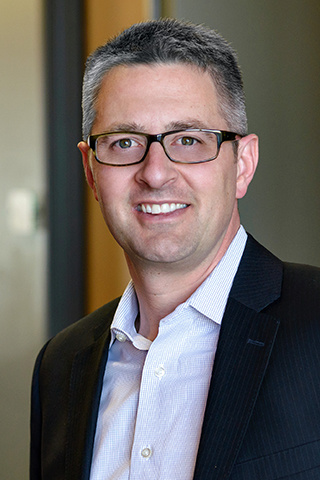
Chris Klitgaard, MHA ’99, chief executive officer of MediRevv in Coralville, Iowa:
“A longtime mentor and former professor once told me, ‘Don’t forget where you came from.’ What he meant by that is regardless of where your career takes you, be true to your core values, and always do the right thing. His words of advice have guided me in my nearly 20-year career.”
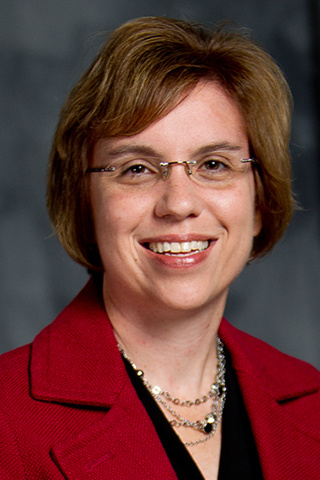
Michelle Niermann, MA ’94, senior vice president/chief operating officer and vice president of clinic operations, UnityPoint Health in Cedar Rapids, Iowa:
“Leadership is a responsibility and a privilege, and nothing can be accomplished without teamwork.”
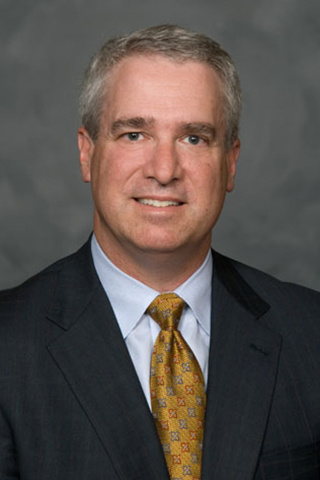
Steve Corbeil, MA ’84, president of TriStar Division at HCA in Nashville, Tennessee:
“You need to be flexible. The health care industry has constantly evolved and changed over the course of my career. It is not as hospital-centric as it used to be, but that also means there are an incredible variety of career paths graduates can pursue.”
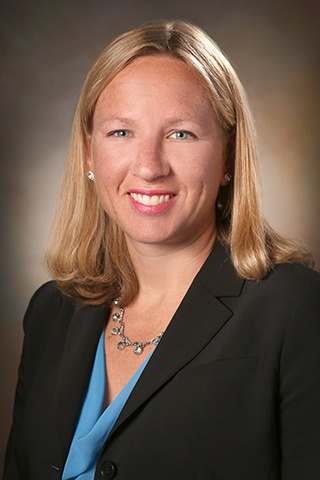
Tina Freese-Decker, MHA ’02, president of Spectrum Health Hospital Group in Grand Rapids, Michigan:
“My MHA classmates were from many different undergraduate fields, so I learned to respect differing opinions and perspectives and to seek out those perspectives.”
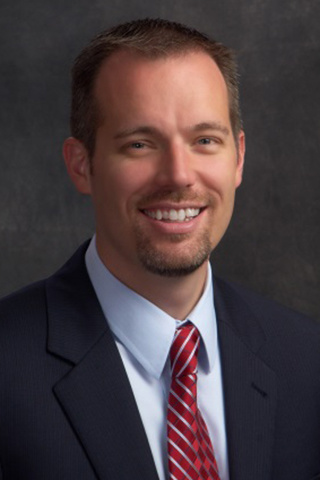
Aric Sharp, MA ’97, vice president, Accountable Care Organization at UnityPoint Health in Des Moines, Iowa
“The most valuable lessons I learned while in the MHA program were how to process massive amounts of information into key learning principles, along with working in teams to solve problems. I’ve used these lessons every day because the health care industry is evolving so quickly that it requires a team-based, collaborative approach.”
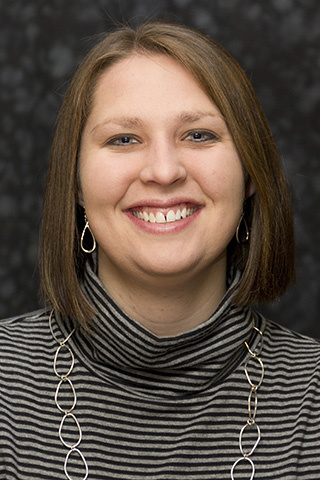
Desiree Einsweiler, MHA ’07, CEO of Palo Alto County Health System in Emmetsburg, Iowa:
“It is amazing the number of Hawkeyes out there in the world, and it never gets old when you’re traveling or at a conference and someone comes up and talks to you because you are both wearing a Hawkeye shirt. I know it sounds cliché, but the relationships you build can last a lifetime, and they can be a real source of support throughout your career.”
Seven things to know about the UI Master of Health Administration program
- The program started 60 years ago at UI Hospitals and Clinics but later moved to the College of Medicine before finally settling in the College of Public Health, where it is offered through the Department of Health Management and Policy.
- The program is ranked No. 10 in the country by U.S. News & World Report, tied with the Ohio State University, Trinity University, and the University of Washington.
- Twenty-five students are accepted into the program each year out of a pool of about 80 applicants.
- The program admits students based on GPA, academic track record, GRE, letters of recommendation, personal statements, and sometimes a personal interview with staff and alumni.
- The program has a 100 percent job placement rate within three months of graduation.
- Students complete an eight- to twelve-week internship between their first and second year.
- After graduation, many MHA students pursue administrative fellowships at health care organizations like academic medical centers, consulting organizations, community hospitals, insurers, and health systems. The average annual salary for a fellowship position in 2015 was $56,344.
